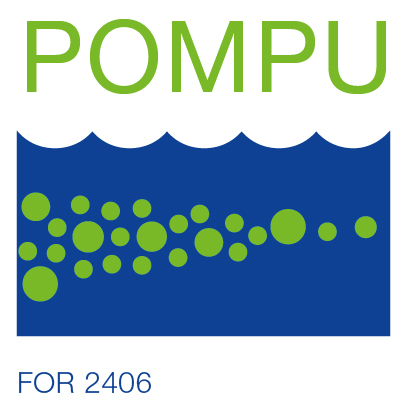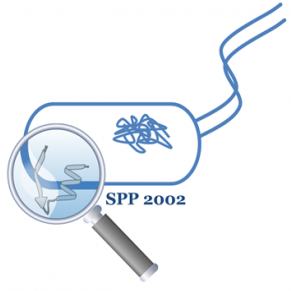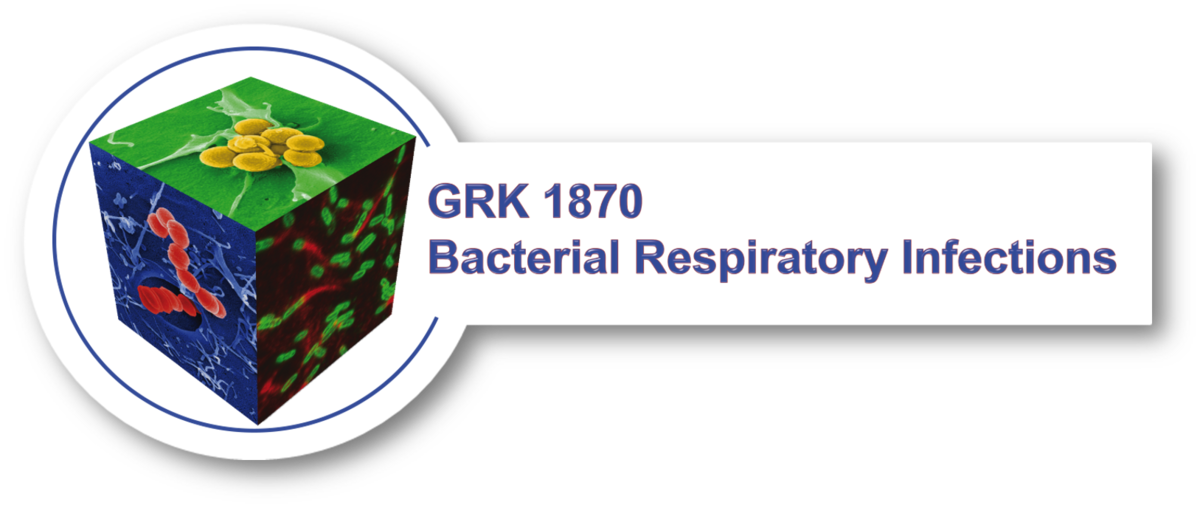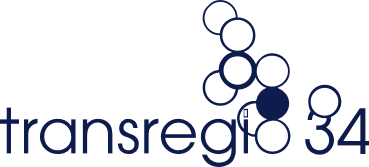Project funded by the German Research Foundation (DFG)
Concentrate
DFG Transregio Collaborative Research Centre 420
Project speakers: Prof. Dr. Thomas Schweder und Prof. Dr. Jan-Hendrik Hehemann
Project homepage: Link
Duration: 01.10.2025-30.06.2029
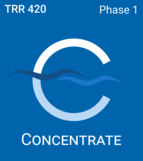
Every year, marine algae convert about five times as much carbon dioxide into polysaccharides – known as glycans – as is released worldwide through the burning of fossil fuels. These glycans are a central component of the marine carbon cycle. Although marine bacteria have a variety of enzymes that can break down glycans and release the bound carbon, surprisingly large amounts of these sugar structures are found in the world's oceans. This suggests that previously unknown factors prevent the complete degradation of glycans and thus contribute to the long-term storage of carbon.
This is where TRR 420 comes in: the aim of the research programme is to decipher the molecular and microbial processes that lead to the stabilisation of glycans in the ocean. Taking an interdisciplinary approach, the research team combines laboratory experiments with measurements in natural marine habitats. The project focuses on the interactions between algae, bacteria, fungi, their glycans, and proteins – down to atomic resolution in the Ångström range (i.e. length scales in the range of about 0.1 to 1 nanometre, or 0.1 to 1 billionth of a metre).
WETSCAPES2.0
DFG Transregio Collaborative Research Centre 410
Project speakers: Prof. Dr. Nicole Wrage-Mönnig und Prof. Dr. Jürgen Kreyling
Project homepage:Link
Duration: 01.04.2025-31.12.2028
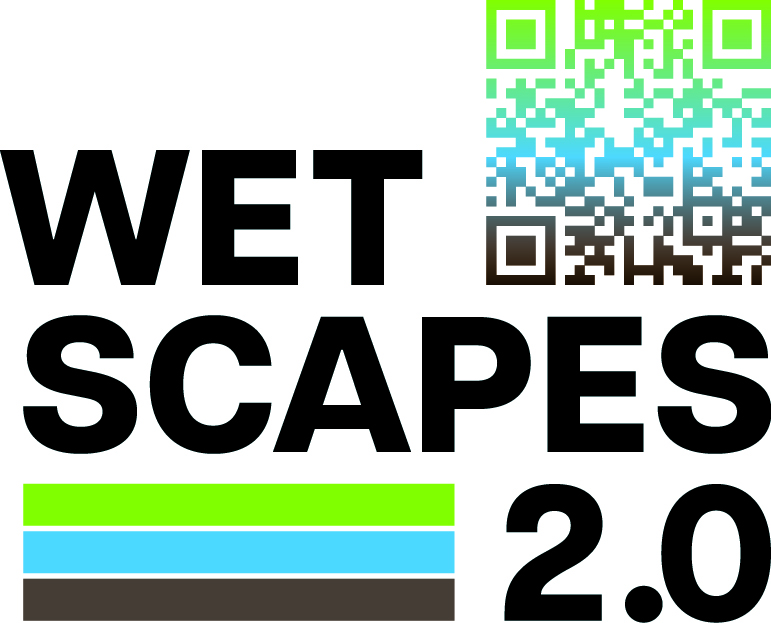
This Transregio will provide a functional understanding of wetscapes and address the spatio-temporal implications of peatland rewetting at the landscape level and beyond. The Overarching Research Questions of WETSCAPES2.0 cover critical functions on all spatial scales of rewetted wetscapes, while the Project Areas depict spatial scales relevant for the key ecological processes and ecosystem functions studied in WETSCAPES2.0. Project Area A focuses on actors and processes at the operational level, Project Area B deals with connected processes within peatlands, and Project Area C studies the role of peatlands in the landscape and beyond.
Methanogenic archaea and methanotrophs are the most important determinants of the potential flux of CH4 from wetlands to the atmosphere. To date, there is no census of methanogen identity, abundance and activity in rewetted fens, and their abiotic and biotic drivers, although the latter are thought to be different from those in natural wetlands. We in project A6 aims to provide such a census, by mapping the abundance and identity of methanogenic archaea in the Screening Sites. Furthermore we aims to assess their role for the greenhouse gas (GHG) budget in rewetted fens. We hypothesize that methylotrophic methanogens are more important for the methane balance of rewetted fens than previously assumed. Furthermore, we anticipate that antagonistic interactions with sulfur-cycling bacteria might reduce methanogen abundance and activity. A6 will investigate methanogens at all experimental levels of WETSCAPES2.0. Using cutting-edge proteomics, we will specifically look into the ecophysiology of novel, as yet poorly constrained methanogens, i.e. the methylotrophic Methanomassiliicoccales.
DiaPieris - Life on Hold
A Proteomic Investigation of the Diapausing Pieris napi Pupae
This project is funded by the DFG from 2024 to 2027.
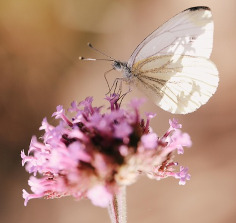
Insects often endure harsh environmental conditions, such as cold winters or prolonged food scarcity, by entering diapause, a hormonally regulated state of dormancy that temporarily halts development and reduces metabolic activity. Building on this natural survival strategy, our project, a collaboration between the Microbial Proteomics and the Animal Physiology departments, leverages advanced proteomic approaches to unravel the dynamic regulation of diapause in the common green-veined butterfly, Pieris napi. By focusing on both global protein expression and key post-translational modifications, such as phosphorylation and acetylation, this research bridges the gap between available transcriptomic insights and the actual physiological adaptations that facilitate developmental arrest and subsequent reactivation. Ultimately, the project seeks to establish a comprehensive molecular model of diapause, offering new perspectives on metabolic regulation, stress resilience, and developmental plasticity in seasonal environments.
DIP Project MA 1426/23-1 MI 2476/2-1
Unraveling the evolutionary, ecological and structural basis of degradation in nature
This project is part of the German-Israeli Project Cooperation (DIP) and is funded by the DFG from January 2020 to December 2024. Our group is closely working together in a research venture with Prof. Itzik Mizrahi of the Ben-Gurion University of the Negev in Israel.
Although the microbial degradation of plant fiber components (e.g. cellulose, hemicellulose) is a key factor of the global carbon cycle and essential for terrestrial food chains, its guiding principles are not disclosed in detail yet. A promising method for investigating potent fiber degraders in their natural habitats is a combined metaproteomics-metagenomics approach. Our group is working on the establishment, optimization and application of the MS-based metaproteome analysis.
Former Projects
POMPU FOR 2406
Proteogenomics of Marine Polysaccharide Utilization
This project wass funded by the German Research Foundation from 2020 to 2024.
- Project B2 “In situ mechanisms of polysaccharide degradation of key bacteroidetal genera in spring algae blooms” together with Dr. Bernhard Fuchs (MPI Marine Microbiology Bremen).
More detailed project information can be found here.
Please note: Once you watch the video, data will be transmitted to Youtube/Google. For more information, see Google Privacy.
DFG Priority Programme 2002
Small Proteins in Prokaryotes, an Unexplored World
This project was funded by the German Research Foundation from 2017 to 2023.
- Project Z “Proteomics and Peptidomics for the identification and functional characterization of sORF coded proteins” together with Prof. Dr. Andreas Tholey (Christian-Albrechts-Universität Kiel.
More detailed project information can be found here.
Graduate College 1870
Bacterial Respiratory Infections – Common and Specific Mechanisms of Pathogen Adaption and Immune Response
This project was funded by DFG from 2014 to 2018.
More detailed project information can be found here.
DFG CRC-TRR34
Pathophysiology of Staphylococci in the Post-Genomic Era
This project was funded by DFG from 2014 to 2018.
More detailed project information can be found here.

